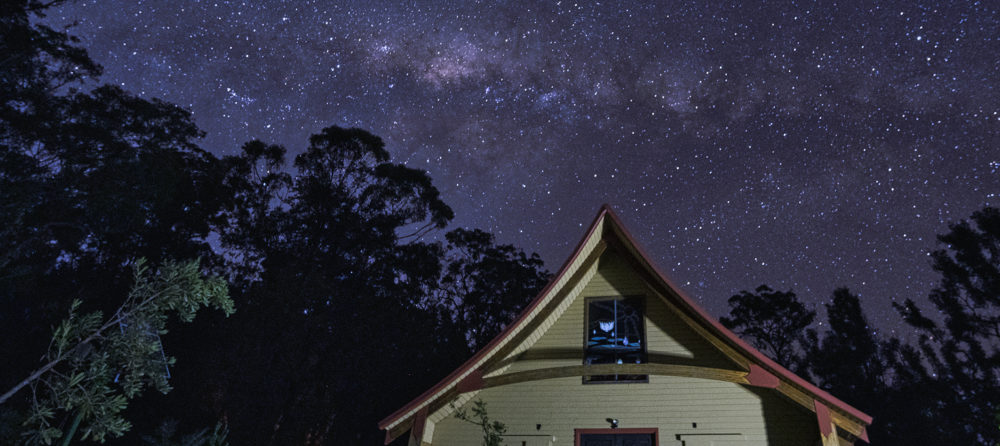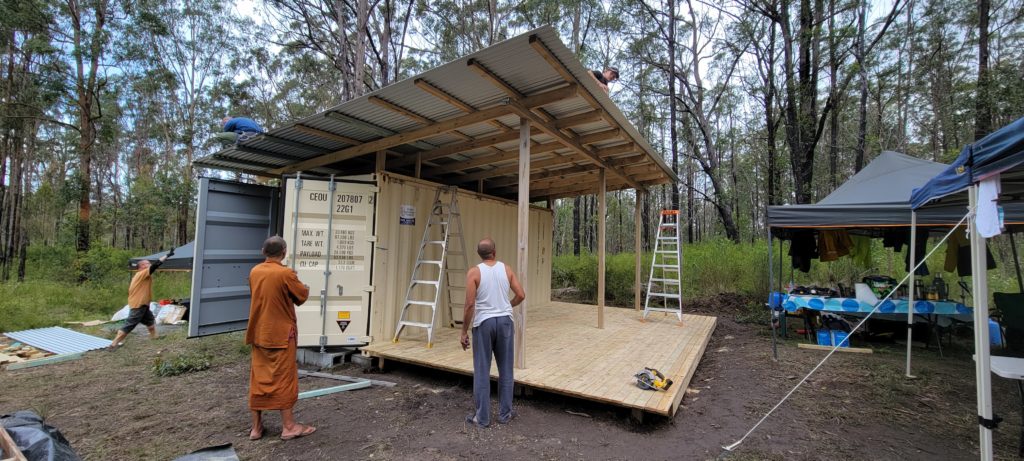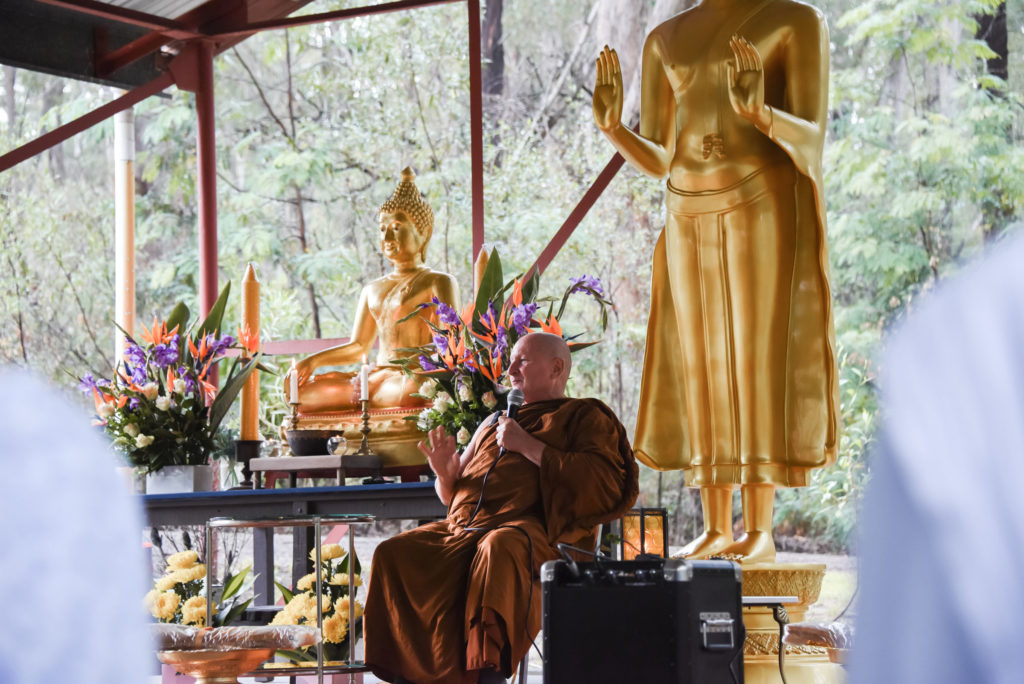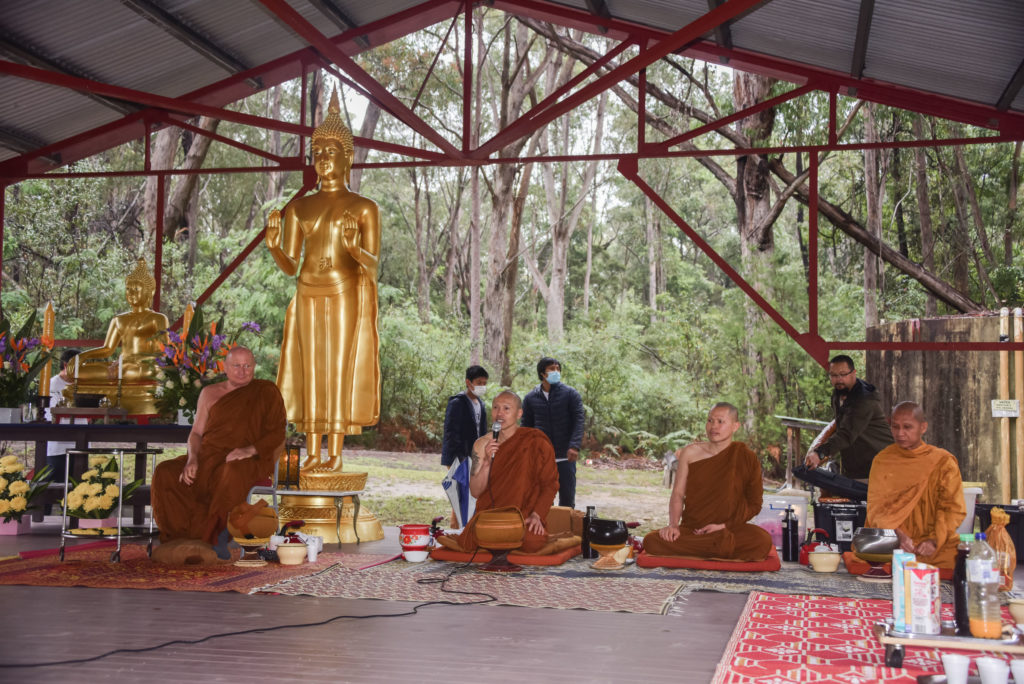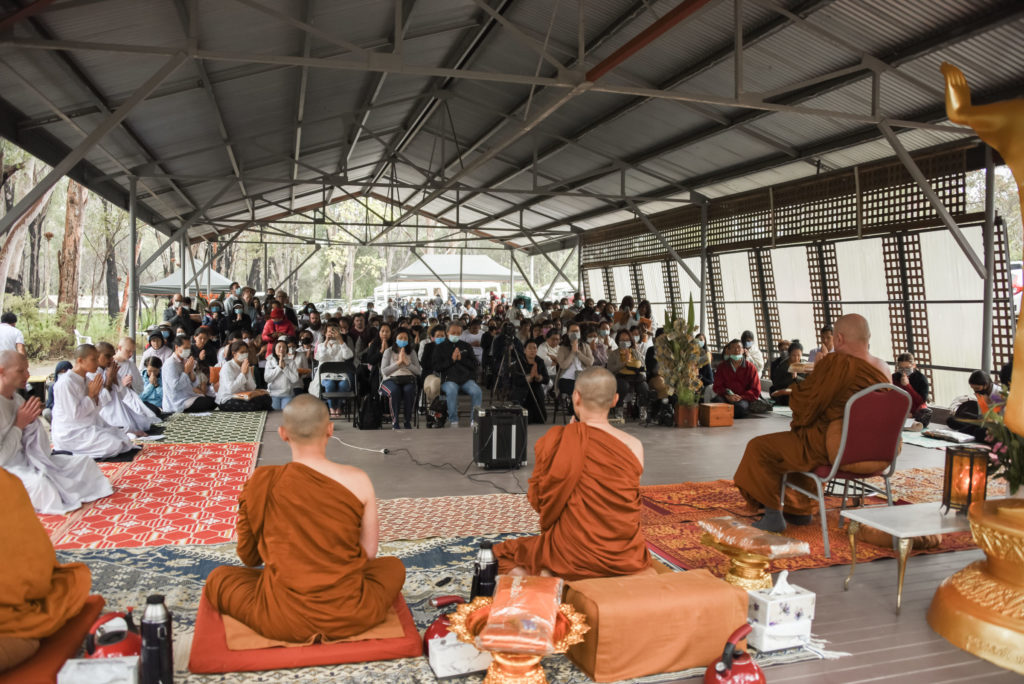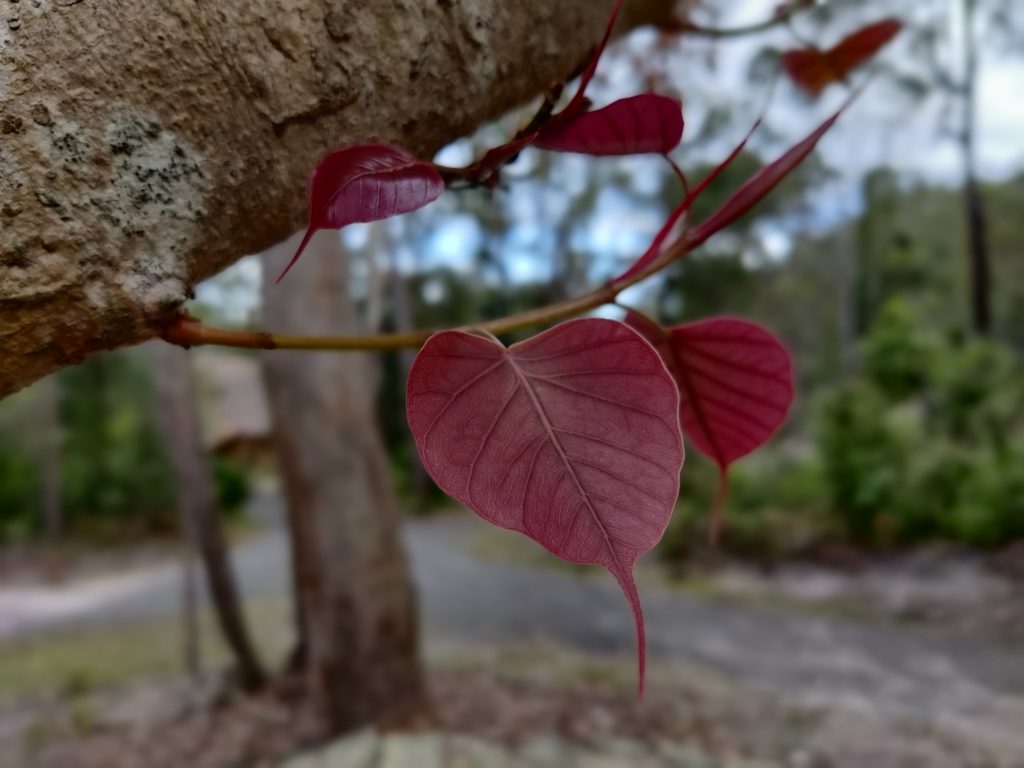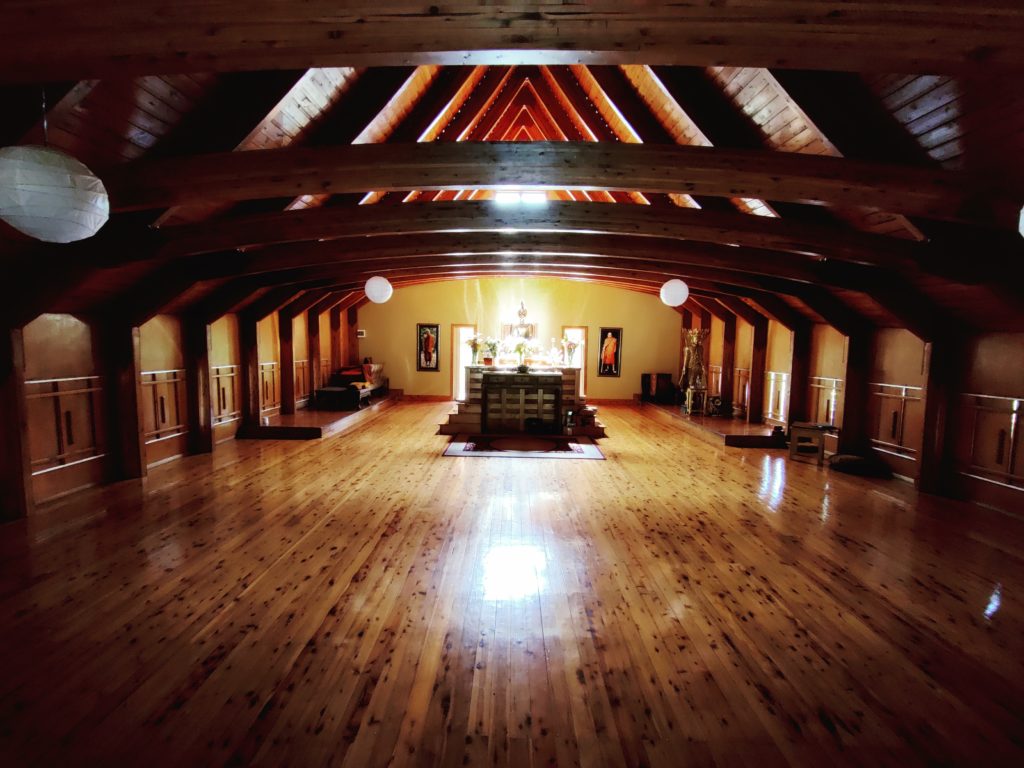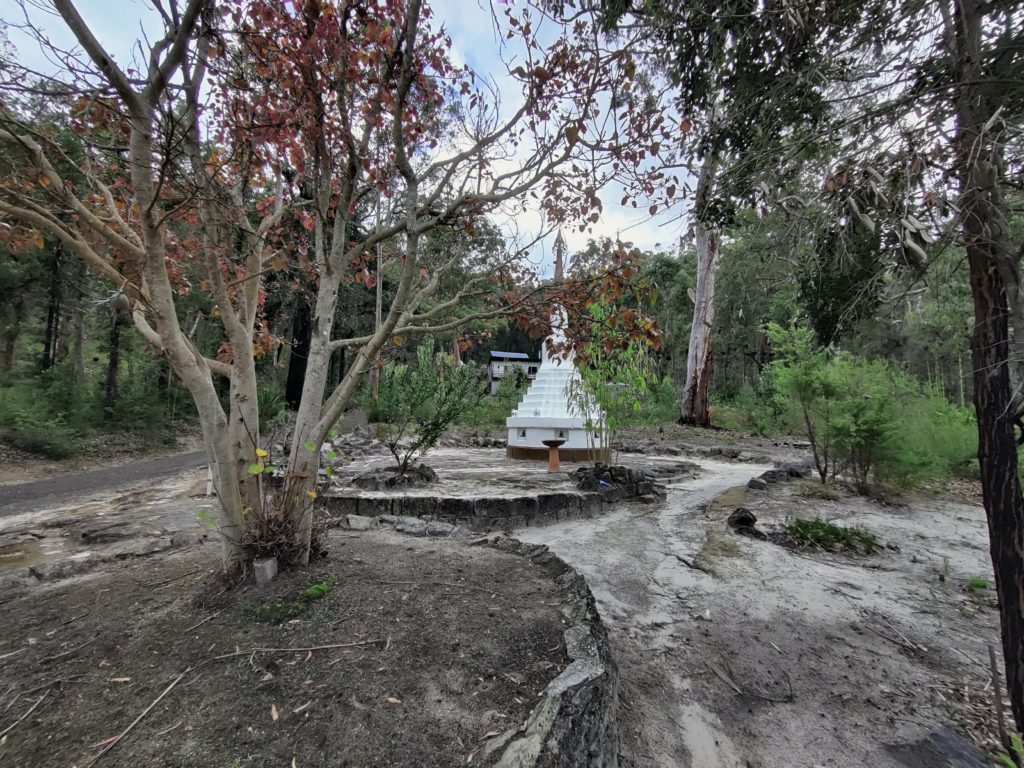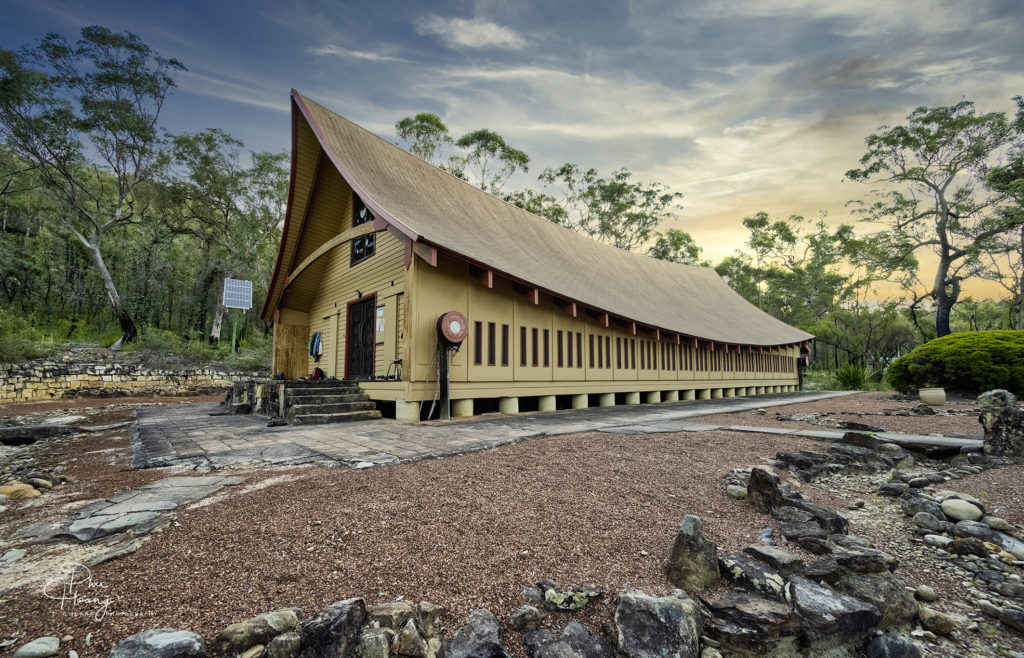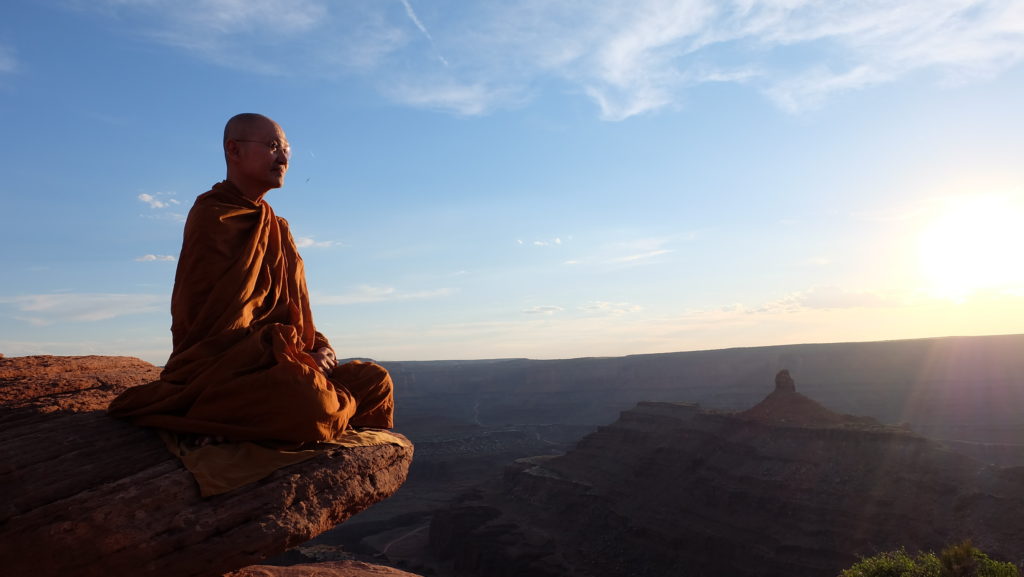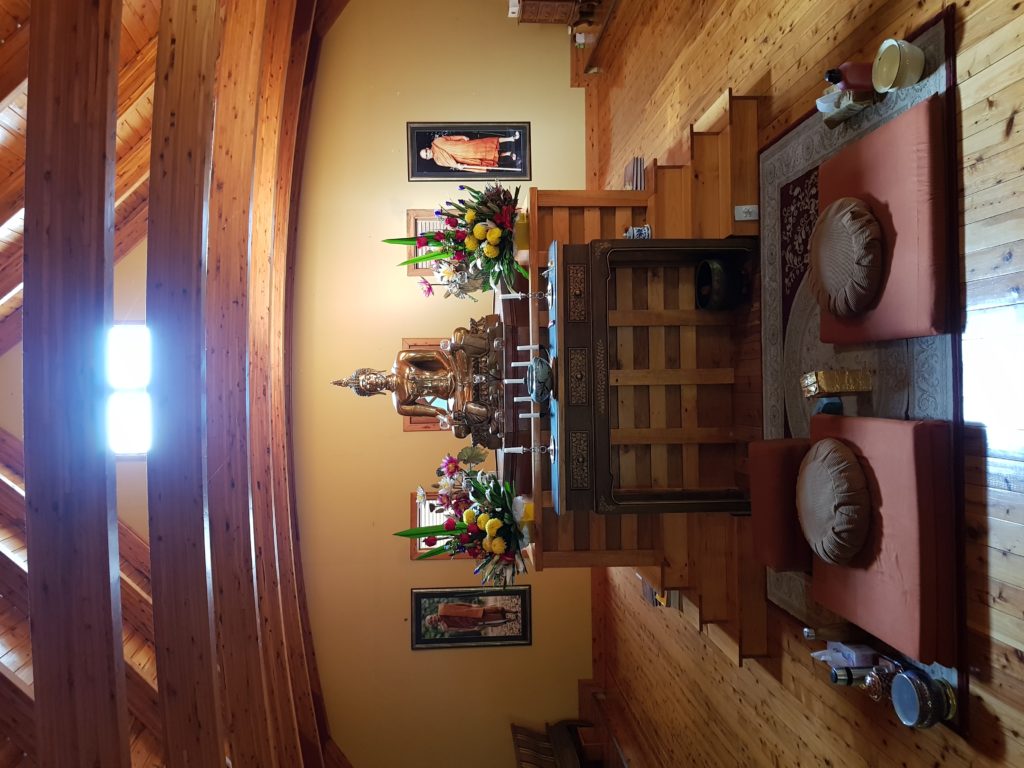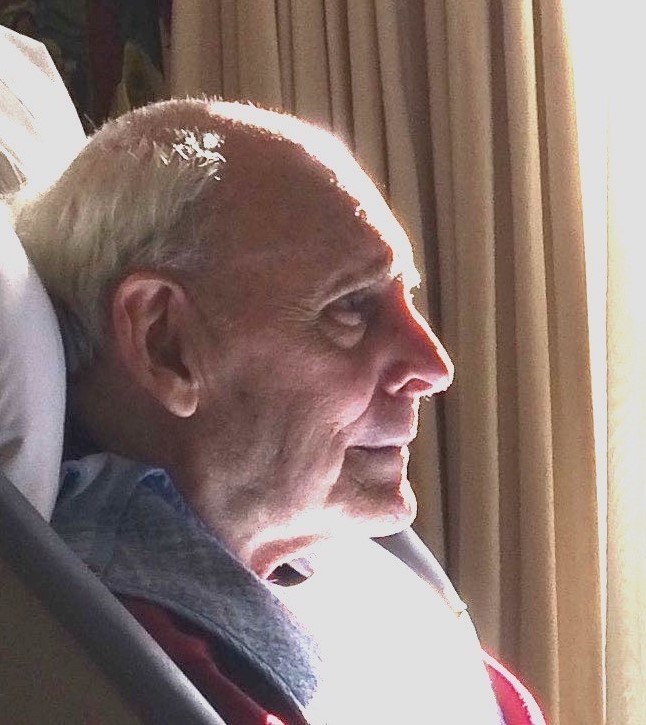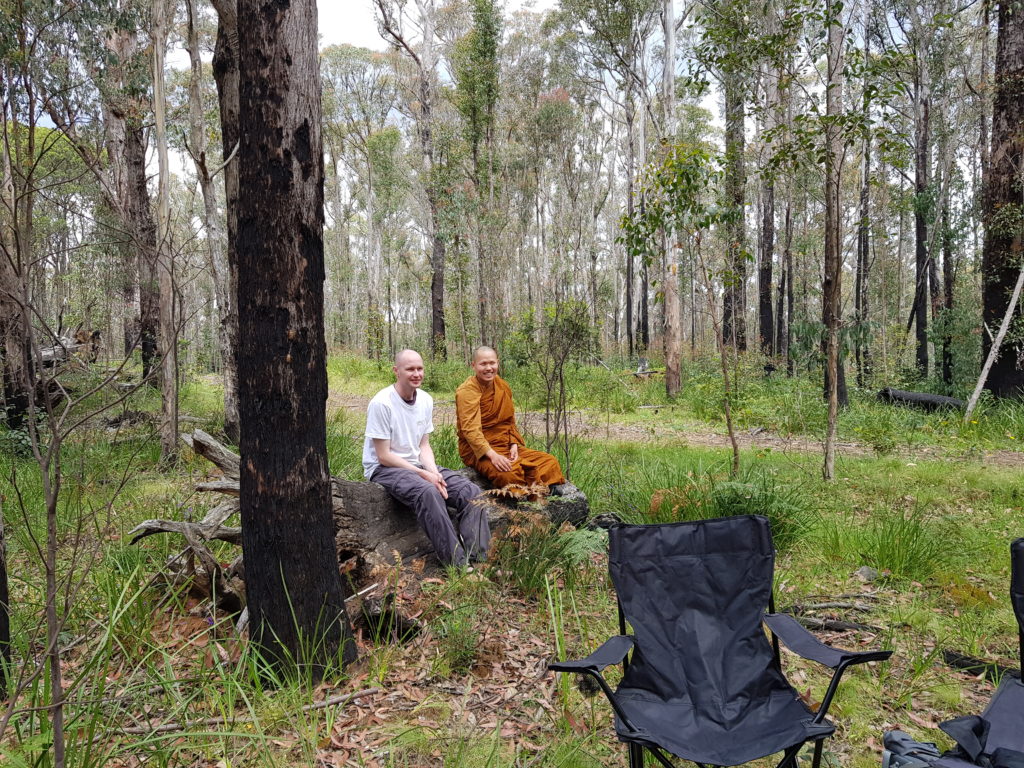




New Book by LP Thiradhammo
After more than five years of research, a new book has manifested. It is titled, ‘Beyond I-Making: A Contemplative Investigation of the Concept of Anatta and the Path to its Realization‘, various ebook versions are available for download:
PDF format (~ 5.23 MB)
epub format (~ 1.02 MB)
mobi format (~ 3.57 MB)
For more of LP Thiradhammo’s teachings, click here: LP Tiradhammo’s Blog

Buddha Statues Casting Ceremony in Thailand

In February, Ajahn Khemavaro attended the Buddha Rupa casting ceremony at Ajahn Dtun’s monastery in Chonburi, Thailand. He also visited LP Piak in Bangkok.
Picture Gallery
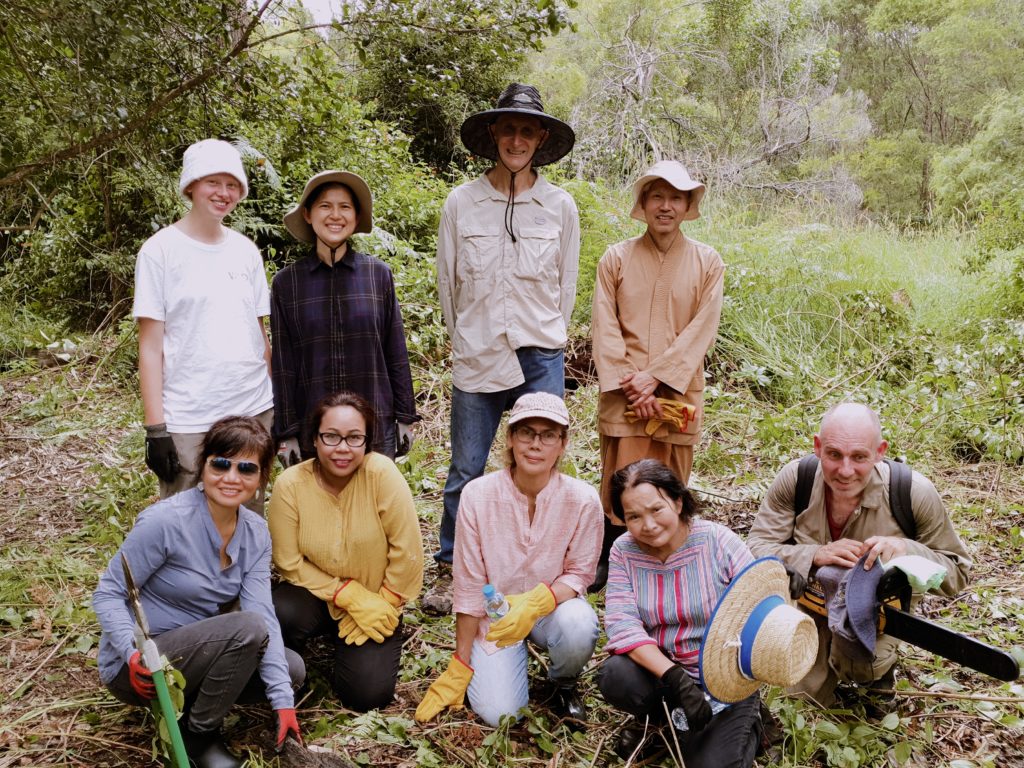
A Bush Meditation Retreat and Biodiversity Conservation Workshop was held at Kempsey Hermitage in January 2022
Picture Gallery
Upcoming Retreats
Spiritual Indulgence
March Weekend Retreat
with Ajahn Khemavaro
Friday 25th to Sunday 27th March 2022
Weekend Retreat Registration
Fully Booked–Waiting List Open
The Wisdom of Stillness
4-Day Easter Retreat
with Ajahn Khemavaro
Friday 15th to Monday 18th April 2022
(*not Tues 19/4 as advertised on Eventbrite)
Easter Retreat Registration
Fully Booked–Waiting List Open
Vesak Weekend Retreat
with Ajahn Khemavaro
Friday 13th to Sunday 15th May 2022
Weekend Retreat Registration
Fully Booked–Waiting List Open
Queen’s Birthday
Long Weekend Retreat
with Ajahn Khemavaro
Friday 10th to Monday 13th June 2022
Long Weekend Retreat Registration
To register for upcoming retreats, please register at Eventbrite or click on link attached to that retreat. Register early as space is limited due to COVID distancing requirements.
Rains Retreat 2022
14th July to 11th October
You are cordially invited to spend the
Rains Retreat at the Wat.
To serve and to deepen your practice.
Minimum stay of one month and priority will be given to those who can commit for the entire three months.
To register for the Rains retreat, please complete the application form on the WBD website.
For more info regarding the monastery, visit our website www.wbd.org.au. For further enquiries, please email wbdretreats@gmail.com or call the office at 0409-389-887 between 9 – 12 noon.
Recent Dhamma Talks on YouTube
The Benefits of Positive Intention
by Ajahn Tiradhammo
Sutta Discussion: #11 Liberation and the End of “I-Making”
by Ajahn Tiradhammo
New Year Retreat–Five Spiritual Powers
by Ajahn Khemavaro
New Year’s Eve Q & A
by Ajahn Khemavaro
Picture Gallery:
Robes Offering Ceremony 2021
Visit to Amber Forest Hermitage (Enfield Range Rd. Cooplacurripa NSW) in February 2022
Buddha in the Bush Project
Excerpt from Introduction of Beyond I-Making: A Contemplative Investigation of the Concept of Anatta and the Path to its Realization
By Ajahn Thiradhammo
While researching the Pali Canon for my previous book, Working with the Five Hindrances, I occasionally came across an intriguingly cryptic phrase:
‘I-making, mine-making and the underlying disposition to conceit’ (ahaṅkāra-mamaṅkāra-mānānusaya). This phrase was intriguing because it suggests a completely new perspective to the universal inquiry into self and selflessness, and provides a glimpse into the unique realization which the Buddha was awakened. He designated this realization with the Pali term ‘anattā’, which is usually translated as ‘non-self’, ‘not-self’ or ‘no-self’. While the translation is literally correct, it unfortunately fails to convey the correct meaning of what the Buddha is saying. The Buddha did not deny self. What he denied was that self has any permanent, imperishable essence. The Buddha realized that self is essentially a constantly changing process, artificially created through the interaction of craving and ignorance. And, since it is ‘made-up’ by activities which we have some influence over, craving and ignorance can also be ‘unmade’ so that the deleterious effects of grasping self as permanent can come to cessation. Where the phrase ‘I-making, mine-making and the underlying disposition to conceit’ is mentioned, the emphasis is upon its cessation in the context of full awakening. The Buddha awoke to the realization that the cessation of ‘I-making, mine-making and the underlying disposition to conceit’ is ultimate well-being through complete liberation from the suffering which ‘I-making’ entails. All the Buddha’s teachings facilitate this realization, some indirectly (for example the practice of ‘selfless’ generosity) and some directly (for example, meditations on impermanence).
This is, of course, exactly what the Buddha’s teaching excels in, giving us an extremely wide range of perspectives applicable to a variety of temperaments. The Buddha’s teaching guides us from the delusion of self-centredness to a liberating reality-centredness, and thus Buddhist spiritual practice is ultimately directed to liberation from the insidious ‘I-making’ process. In order for this experience to be realized, the Buddha provided many approaches. Therefore, through investigating the various contexts in which this phrase is used in the Pali Canon, it is possible to understand the processes leading to the cessation of I-making, mine-making and the underlying disposition to conceit, and the means to arrive at liberation.
